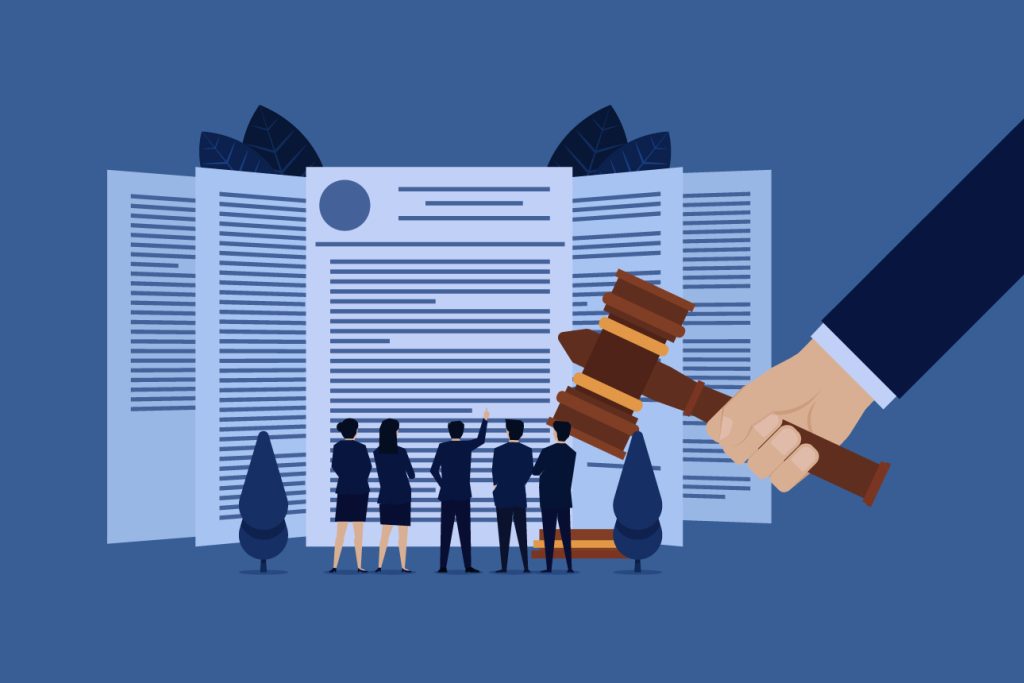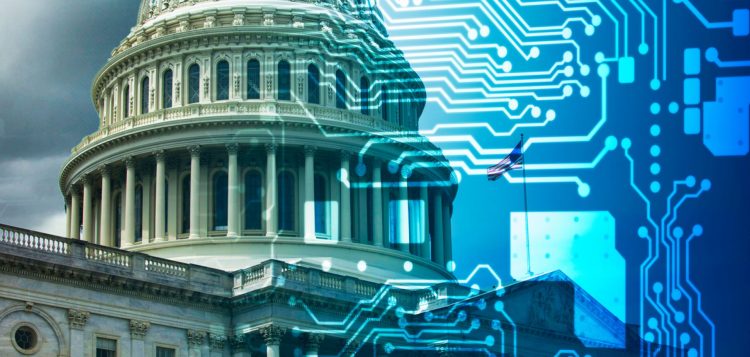Introduction:
Over the past decade, the power of big tech companies like Google, Facebook, Amazon, and Apple has grown to unprecedented levels, making them integral to the global economy. However, with power comes responsibility—or at least the demand for it. There have been growing calls for regulation and increased scrutiny over these companies, with critics arguing that their dominance poses risks to competition, consumer privacy, and the integrity of democratic processes. Amidst this growing pressure, the US government has started to take more decisive steps toward shaping the future of the tech industry, potentially transforming its structure and how it operates.
This article explores the evolution of tech regulation in the United States, particularly regarding antitrust concerns and privacy laws, and examines what these changes could mean for investors and the broader market.
Antitrust Scrutiny:
For years, U.S. regulators have struggled to apply antitrust laws to the largest tech companies, leaving them largely unchecked in their growth. Antitrust laws, which were originally designed to prevent monopolies and promote fair competition, have struggled to keep pace with the rapidly evolving tech landscape. The traditional models of antitrust enforcement, built on economic theories from the early 20th century, were not designed to tackle issues like network effects, platform dominance, and data monopolies, which are key drivers of value in the tech industry.
Historical Context:
In the past, major companies like Microsoft and AT&T were subject to antitrust actions aimed at breaking up monopolies and promoting competition. However, tech giants like Google, Facebook, and Amazon have largely avoided similar scrutiny, with regulators arguing that these companies provide free services or low-cost goods, making it difficult to justify antitrust intervention.
Recent Developments:
In recent years, however, the regulatory landscape has shifted. U.S. regulators, including the Federal Trade Commission (FTC) and the Department of Justice (DOJ), have taken more aggressive actions against big tech companies. A notable example is the Google antitrust case, in which the DOJ accused Google of anticompetitive practices in online advertising and search. Similarly, Facebook has faced antitrust scrutiny related to its acquisitions of Instagram and WhatsApp, which some argue were aimed at reducing competition.
Lawmakers have also started to push for stronger antitrust reforms. For instance, the American Innovation and Choice Online Act—which was introduced in 2021—proposes to ban large tech platforms from self-preferencing their services, preventing unfair business practices that harm competitors. Such laws could drastically alter the landscape for big tech companies, challenging their business models and threatening their market share.
Privacy Concerns:
Alongside antitrust concerns, privacy has become one of the most pressing issues in the regulation of big tech. Consumers are increasingly aware of how their personal data is being collected, shared, and used by tech companies for targeted advertising, content recommendations, and even political manipulation. As a result, lawmakers have started to push for stricter privacy regulations to protect consumers and ensure that companies handle data responsibly.

The Rise of Data Privacy Laws:
One of the most significant regulatory shifts in recent years has been the introduction of laws that focus on data privacy. The California Consumer Privacy Act (CCPA), passed in 2018, was one of the first major state-level data privacy laws in the U.S. It grants California residents the right to know what personal information businesses collect about them, and to request that data be deleted or corrected. Similarly, the Virginia Consumer Data Protection Act (VCDPA) and the Colorado Privacy Act (CPA) followed, signaling a broader shift toward consumer data protection at the state level.
At the federal level, there have been multiple attempts to create a national data privacy law, but progress has been slow. The Consumer Online Privacy Rights Act (COPRA), introduced in 2021, seeks to establish federal regulations similar to the General Data Protection Regulation (GDPR) in the European Union, requiring companies to give consumers greater control over their personal data.
Impact on Big Tech’s Business Models:
For companies like Facebook and Google, whose primary revenue source is advertising driven by user data, stronger privacy laws could have a significant impact on their business models. These companies rely heavily on data to personalize ads and increase their value to advertisers. More stringent regulations could limit their ability to collect and process user data, thereby reducing the effectiveness of their advertising platforms.
Moreover, Apple and Amazon—which also collect vast amounts of user data—could face similar challenges. Apple, for example, has already implemented privacy features in its iOS ecosystem that limit tracking by third-party advertisers, a move that has disrupted the advertising business for companies like Facebook.
Investment Implications:
The increasing focus on regulation of tech giants presents both risks and opportunities for investors. The impact of antitrust scrutiny and privacy regulations on the largest tech firms will largely depend on how effectively they can navigate these regulatory changes and adapt their business models to comply with new rules.
Valuation and Profitability:
The valuation of tech giants could be impacted by increased regulation, especially if it affects their profitability. For instance, Google and Facebook could see a reduction in advertising revenue if data privacy laws limit their ability to track users effectively. In the case of Amazon, restrictions on how it collects and processes data from consumers could reduce the effectiveness of its advertising business.
Additionally, the potential for antitrust enforcement—which could result in fines, breakups, or structural changes to tech companies—could significantly alter investor sentiment. Companies facing a potential breakup, like Facebook (which could be forced to sell Instagram or WhatsApp), could see their stock prices decline.
On the other hand, there could be investment opportunities in companies that specialize in compliance with data privacy laws, such as those offering cybersecurity solutions or privacy-focused technologies. Moreover, companies that are less dependent on user data or advertising revenue, like Microsoft or Apple, may be better positioned to weather regulatory changes.
Outlook:
The regulatory landscape for tech giants is rapidly evolving, and the U.S. government’s approach to regulating big tech will likely continue to shape the future of the industry. Here are some key trends and potential outcomes:
- More Aggressive Antitrust Enforcement: The U.S. is likely to continue its focus on antitrust action against big tech. Future enforcement could lead to significant changes in the structure of these companies, potentially breaking them up or forcing them to adopt new business practices.
- Stricter Privacy Regulations: The growing focus on data privacy, both at the state and federal levels, could lead to comprehensive national privacy laws that further restrict how tech companies handle user data. These changes could disrupt advertising models, but they may also open up new opportunities for tech companies that prioritize privacy and data protection.
- Market Shifts: Increased regulation could drive innovation in the tech sector, with companies that prioritize privacy and ethical data usage gaining a competitive advantage. This could lead to a shift in market leadership, with smaller, more agile tech firms benefiting from the regulatory changes.
- Global Harmonization: As privacy and antitrust regulations continue to evolve in the U.S., there may be a growing trend toward global regulatory harmonization. The EU’s General Data Protection Regulation (GDPR) and similar regulations in other regions could influence U.S. policy, creating a more consistent global framework for tech companies.
In conclusion, the regulatory environment for U.S. tech giants is undergoing a major transformation, and both investors and companies must adapt to the changing landscape. While the path forward is uncertain, it is clear that regulation will continue to play a central role in shaping the future of the tech industry.



































